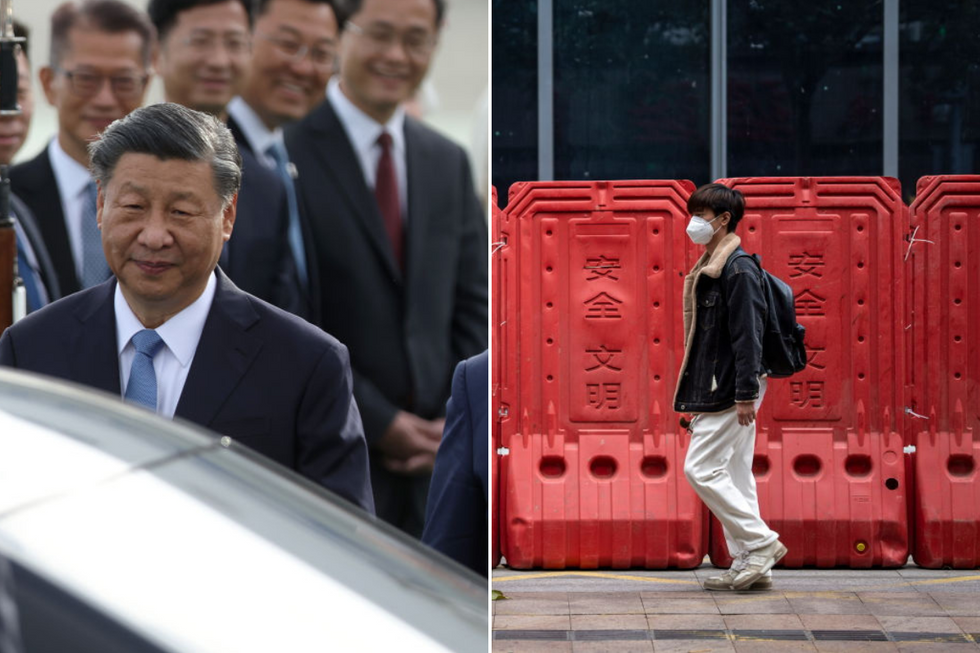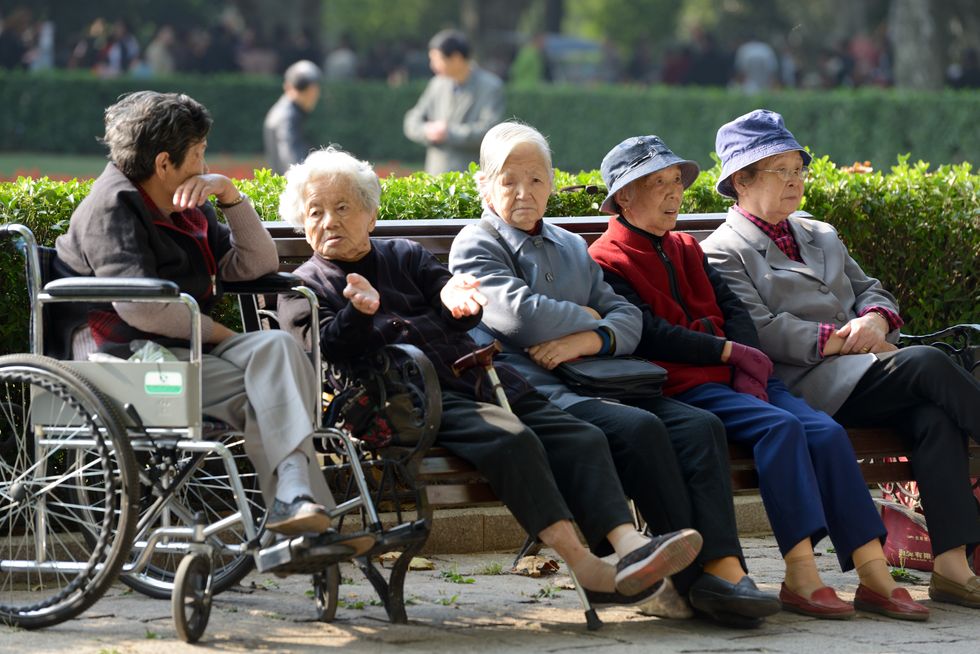China could see its population plummet by the end of the century, according to the latest forecasts.
The superpower currently holds the world's second-largest population with over 1.4billion people.
However, the forecast from the Shanghai Academy of Social Sciences (SASS) has predicted China’s population will have dropped by 60 per cent by the end of the century.
This means the population could fall as low as 525million by 2100, 62million fewer than the previous year's projection.

The new report comes closely after data from the Chinese statistics bureau revealed that the number of deaths in China exceeded the number of births for the second consecutive year in 2023.
These new figures could have an impact on the nation’s economy and, consequently, the global economy, according to analysts.
However, other analysts view the population decline as an opportunity to address environmental and resource challenges. The United Nations projects a global population of 8.9 to 12.4 billion by 2100 based on various trends.
Various factors, including the nation’s urbanisation and previous one-child policy, have contributed to declining births for decades.
LATEST DEVELOPMENTS
- China's economic crisis takes huge turn for the worse as inflation drops at fastest pace in 14 years
- China economy like '2008 crash on STEROIDS' - warning crisis to get 'much worse
- China opens Antarctic base right next to US site amid espionage fears

However, China also has to battle with an ageing population that experts say threatens key Beijing policy. These goals for the coming decade include boosting domestic consumption and reining in ballooning debt, posing a severe challenge to the economy's long-term growth prospects.
A record low birth rate in 2023 and a wave of Covid-19 deaths resulted in a second consecutive year of population decline, accelerating concerns about China's demographic downturn.
Large groups of the 1.4billion people living in China will exit the labour pool causing further social imbalances.
Senior research fellow at the Centre of Policy Studies (CoPS) at Victoria University Xiujian Peng said: "China's age structure change will slow down economic growth."
Despite efforts from President Xi's government to encourage larger families, changing preferences, economic factors and the high cost of living in urban areas have limited their impact.
China, which accepts few and only highly-skilled foreign workers, has one of the world's lowest retirement ages, at 60 for men, 55 for white-collar women and 50 for women who work in factories. A record 28million people are scheduled to retire this year.
Employees at state-owned companies are typically mandated to retire when of age, while private employers rarely keep workers longer, whereas in some Western countries the retirement age is more flexible.
from GB News https://ift.tt/qngPesQ
China could see its population plummet by the end of the century, according to the latest forecasts.
The superpower currently holds the world's second-largest population with over 1.4billion people.
However, the forecast from the Shanghai Academy of Social Sciences (SASS) has predicted China’s population will have dropped by 60 per cent by the end of the century.
This means the population could fall as low as 525million by 2100, 62million fewer than the previous year's projection.

The new report comes closely after data from the Chinese statistics bureau revealed that the number of deaths in China exceeded the number of births for the second consecutive year in 2023.
These new figures could have an impact on the nation’s economy and, consequently, the global economy, according to analysts.
However, other analysts view the population decline as an opportunity to address environmental and resource challenges. The United Nations projects a global population of 8.9 to 12.4 billion by 2100 based on various trends.
Various factors, including the nation’s urbanisation and previous one-child policy, have contributed to declining births for decades.
LATEST DEVELOPMENTS
- China's economic crisis takes huge turn for the worse as inflation drops at fastest pace in 14 years
- China economy like '2008 crash on STEROIDS' - warning crisis to get 'much worse
- China opens Antarctic base right next to US site amid espionage fears

However, China also has to battle with an ageing population that experts say threatens key Beijing policy. These goals for the coming decade include boosting domestic consumption and reining in ballooning debt, posing a severe challenge to the economy's long-term growth prospects.
A record low birth rate in 2023 and a wave of Covid-19 deaths resulted in a second consecutive year of population decline, accelerating concerns about China's demographic downturn.
Large groups of the 1.4billion people living in China will exit the labour pool causing further social imbalances.
Senior research fellow at the Centre of Policy Studies (CoPS) at Victoria University Xiujian Peng said: "China's age structure change will slow down economic growth."
Despite efforts from President Xi's government to encourage larger families, changing preferences, economic factors and the high cost of living in urban areas have limited their impact.
China, which accepts few and only highly-skilled foreign workers, has one of the world's lowest retirement ages, at 60 for men, 55 for white-collar women and 50 for women who work in factories. A record 28million people are scheduled to retire this year.
Employees at state-owned companies are typically mandated to retire when of age, while private employers rarely keep workers longer, whereas in some Western countries the retirement age is more flexible.



0 Comments
Don't share any link